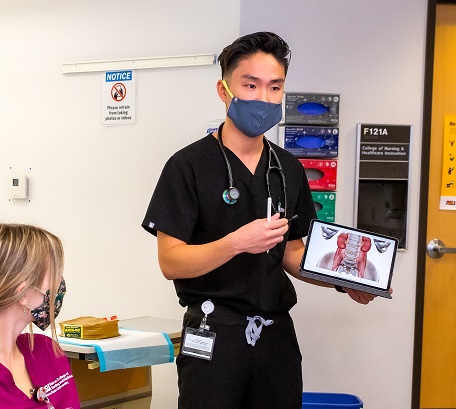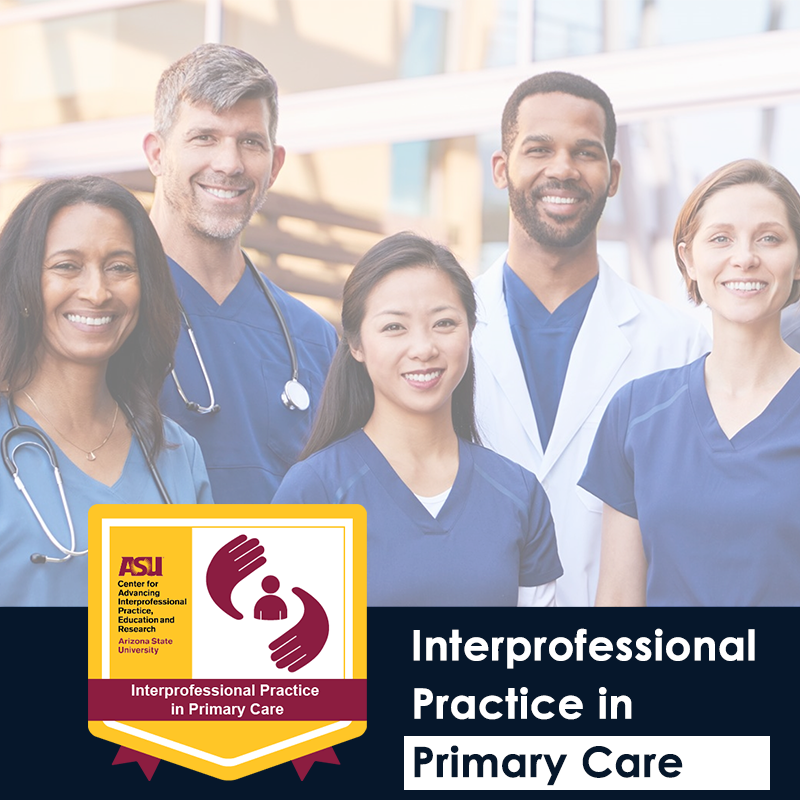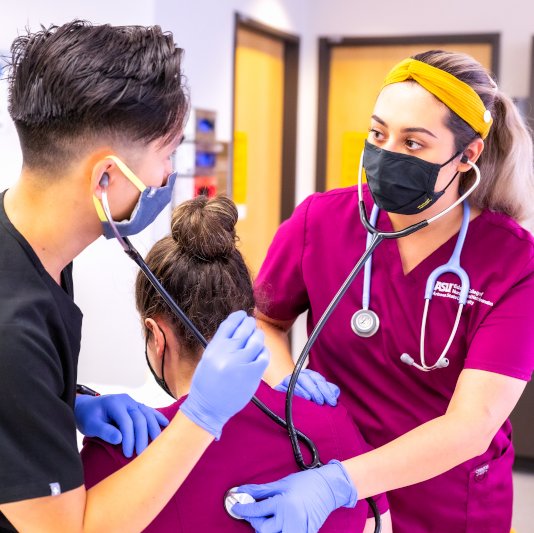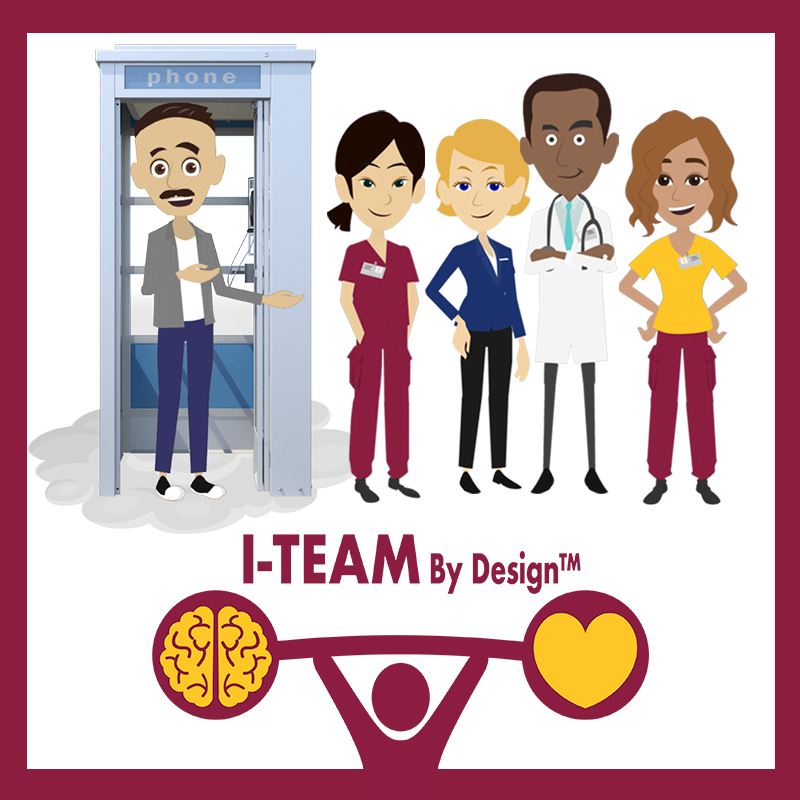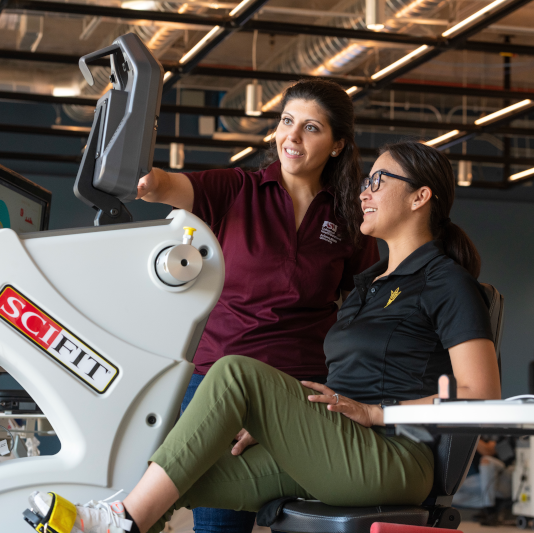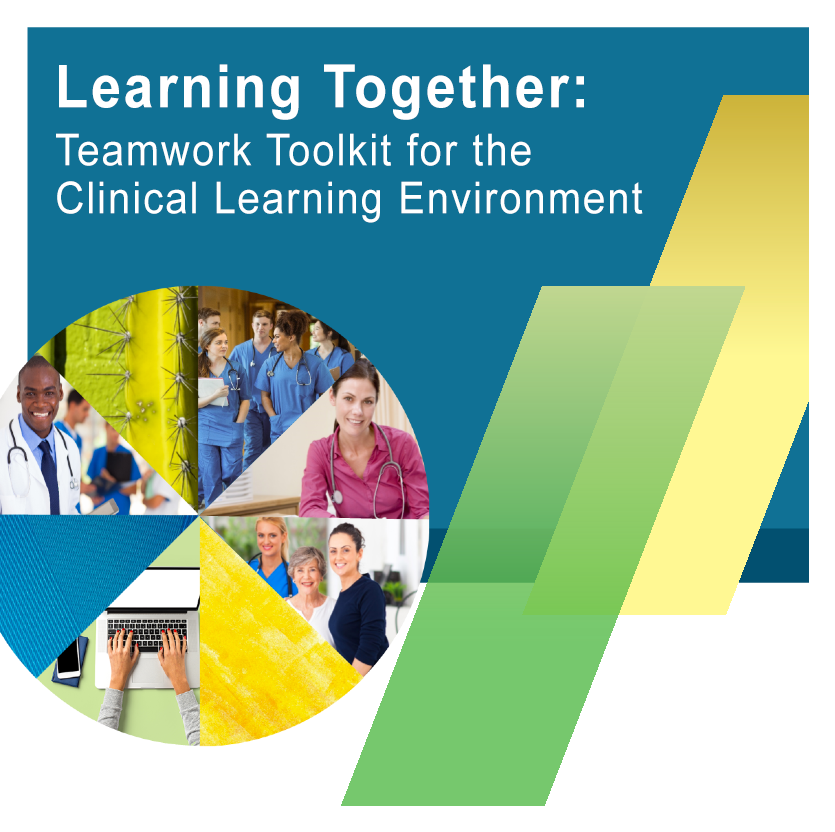Community, Professional and Continuing Education
Edson College of Nursing and Health Innovation is proud to offer many exceptional courses, programs and certificates for personal and professional development. Click the Learn More button for program information and to enroll today.
Courses
Advanced Certificate in Nursing Precepting
This is an advanced certificate that goes beyond the basics covered by other preceptor training courses. Learners will cover the fundamental skills of effective precepting, as well as more advanced competencies for effective communication and mentorship required by the preceptor role.
The Advanced Certificate in Nurse Precepting will cover fundamental concepts within the preceptorship processes from communication and mentoring. Throughout the modules students will work through various activities to gain a strong understanding of learning objectives.
ASU & Mayo Clinic Health and Wellbeing Certificate
Some people use the terms “health” and “well-being” interchangeably. But the definition of each term has a different meaning. The World Health Organization defines health as a state of complete physical, mental and social well-being. So, health goes beyond the absence of disease.
Well-being, on the other hand, is a personal decision to make changes toward a healthy and fulfilling lifestyle. A person’s devotion to wellness centers around enhancing their complete well-being. This holistic view of well-being includes the optimal health of the body, mind and spirit.
Foundations of Clinical Research Management Certificate

The Foundations of Clinical Research Management Program provides a basic introduction and foundation for the management of clinical studies.
It consists of three courses which include Introduction to Ethics in Research, Introduction to FDA Regulations for Human Subject Research, and Introduction to Clinical Research Operations.
For more information, contact CRM Program Director, Kaushal Shah, at [email protected].
Global Health Management Certificate
Influence health systems on a global scale, driving organizational change and new approaches in the post-COVID age. Gain a nuanced understanding of the diverse social, political, and cultural issues surrounding global health delivery and practice. Develop the skills and knowledge needed to lead an organization through new and emerging health care challenges.
Thunderbird School of Global Management at Arizona State University and ASU’s Edson College of Nursing and Health Innovation’s online Global Health Management certificate program empowers health professionals of all backgrounds, equipping them with the perspectives and skills to join the next generation of rising global health leaders.
Health Innovation Leadership Certificate
Make a difference in modern health care by developing leadership skills that drive innovative results. Gain a solid understanding of complexity in health care systems while mastering methods for applying best practices and new ideas in organizations and teams.
Thunderbird’s online Health Innovation Leadership certificate program delivers expert instruction from Arizona State University’s nationally-ranked Edson College of Nursing and Health Innovation, empowering health care leaders with advanced tools to advocate for the best care and the latest evidence-based practices.
Human Trafficking Awareness Program
Human trafficking is a world-wide public health and social justice issue. Although it spans every country, it is also happening in the United States in cities and rural communities, and it can impact anyone regardless of age, gender, socio economic status, race, or sexual identity.
This course will provide an overview of the two main types of trafficking: sex and labor, and an insight into the terminology used, red flags, who the buyers are, and more.
Human trafficking is happening all around us – this course will help you recognize it, and know what to do.
Interprofessional Practice in Primary Care
With an urgent need for an expanded primary care workforce and the improvement of team-based collaborative care, the Interprofessional Practice in Primary Care course is an essential resource for learning, growth, and practical application. This 4-hour accredited course introduces up-to-date information and tools for team-based practices central to high-quality health care, including care coordination and integrated care, team decision-making and habits of high-performing teams.
All course content aligns with the Interprofessional Education Collaborative (IPEC®) core competencies and offers practical applications tailored to the primary care setting. Learners earn Digital Badge in Interprofessional Practice in Primary Care, and Certificate of Completion.
Introduction to Interprofessional Team-Based Care
The Introduction to Interprofessional Team-Based Care modules cover the foundational knowledge of team-based care and collaborative practice. The modules use a case-based learning approach with realistic scenarios of patients and families seen in a variety of primary care settings. General categories of interprofessional competencies, such as knowledge of team members’ roles and communication and conflict-management strategies, are embedded in actual clinical situations and decisions.
These universal and easily accessible eLearning modules reflect Interprofessional Education Collaborative (IPEC®) core competencies as well as key team-based applications for primary care.
Learning objectives in each module are directly connected to specific IPEC® competencies, making it easy to see exactly what skills and knowledge can be acquired through completion.
Introduction to the Health Professions and the US Healthcare System
Do you ever wonder why our health care system seems so complicated?
Perhaps you are an innovative thinker wondering what healthcare might look like in the future and how health care technology works. Or maybe you are thinking about going into the health care field but are unsure just what path you want to take - and what getting there looks like.
This course will set you on a path to discover the answers to all of these questions and more.
I-TEAM: Interprofessional Training in Empathy, Affect and Mindfulness
I-TEAM By Design™ educates individuals and teams in core concepts of patient-centered, team-based health care delivery, and provides training opportunities to enhance interpersonal and interprofessional communication and connectivity. Get ready to strengthen your empathy and humility muscles, cultivate heightened self- and other-awareness, and build emotional attunement.
With a solid 80's montage vibe and snippets of the videos in the program - the I-TEAM By Design™ teaser below will introduce you to some of the characters and the vibe of this fully animated and accredited short course.
Online Culture and Health
What really is ‘culture’ and who decides what creates it? Is it what language we speak and where we grew up or does it go beyond that to encompass what we believe, think, and value? In this course you will unpack some of those questions and extend them into the field of healthcare.
You’ll take a look at the U.S. as well as other countries to examine health, illness, and how health care is delivered. You will also unpack barriers to intercultural communication and strategies to not only overcome these but to improve upon them. Cultural competency is increasingly important in not only health care but every single industry - come find out more about what it means - and how it applies to you - in this course!
Teamwork Toolkit for the Clinical Learning Environment
This accredited Edson Interprofessional Module By Design® Microlearning Course provides a timely and practical introduction to the Clinical Learning Environment (CLE). The course covers core features, goals and strategies of a CLE to support clinicians, students, and members of clinical teams in providing quality care to patients and families.
The course is comprised of seven short, self-paced modules that include microlearning videos, discussion questions to facilitate team engagement, and knowledge checks to reinforce key concepts. The modules may be used by individual learners or in a group setting and are especially effective for engaging students and team members in discussions about improving their CLE.
The course is beneficial for both students and clinicians in all health professions and practice settings. Digital credential included.
The C.A.S.E. for Equity in Health Care
This course is designed for both clinical and non-clinical health care workers who seek to practice in ways that promote equity. It provides in-depth discussions on health equity and birth equity, allowing participants to gain a thorough understanding of these concepts. Additionally, the course explores the health impacts of racism and historical trauma, equipping learners with the knowledge needed to address and mitigate these issues in their professional practices.
For credit-bearing certificate programs, please see our Graduate Certificates.
